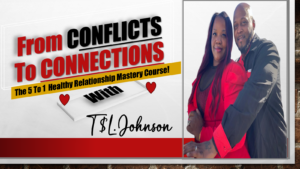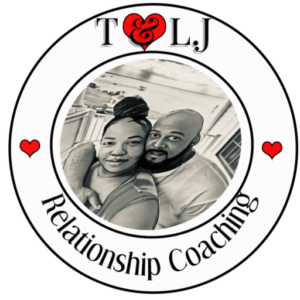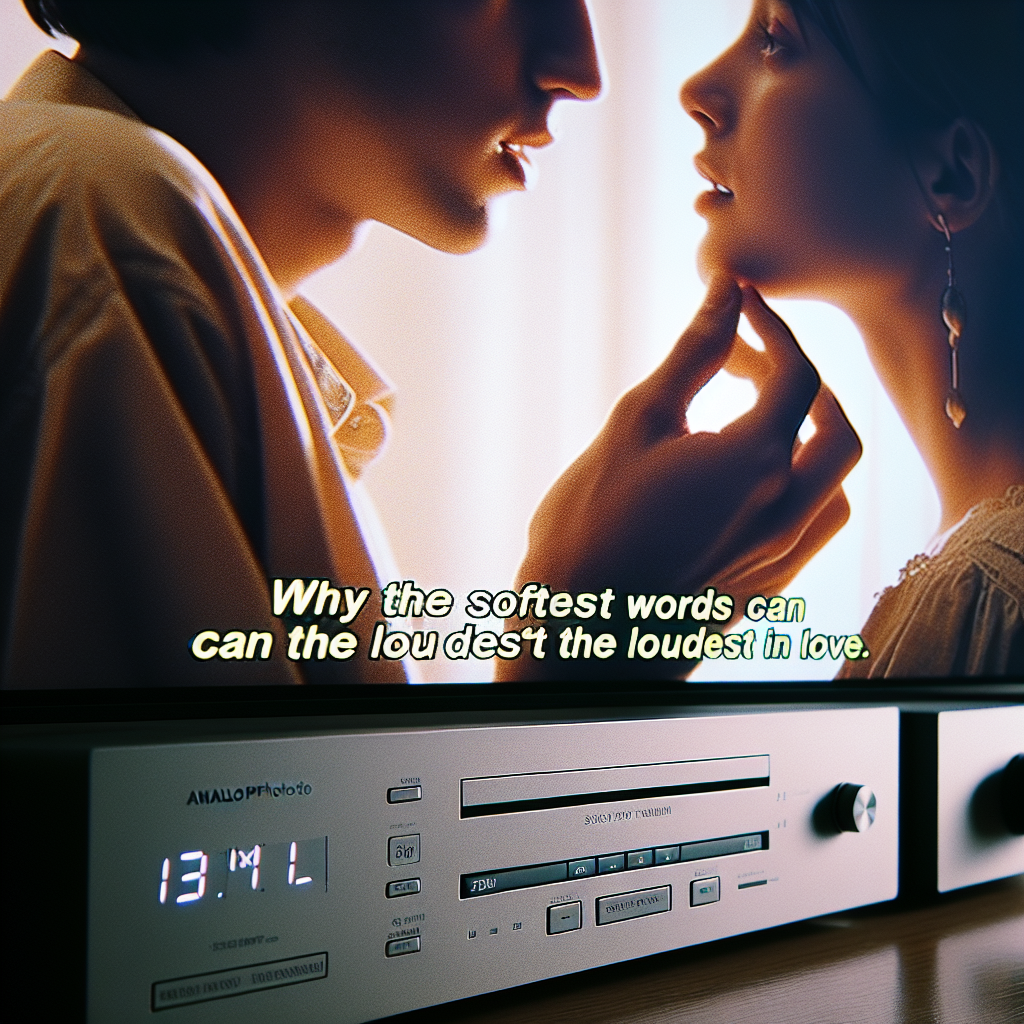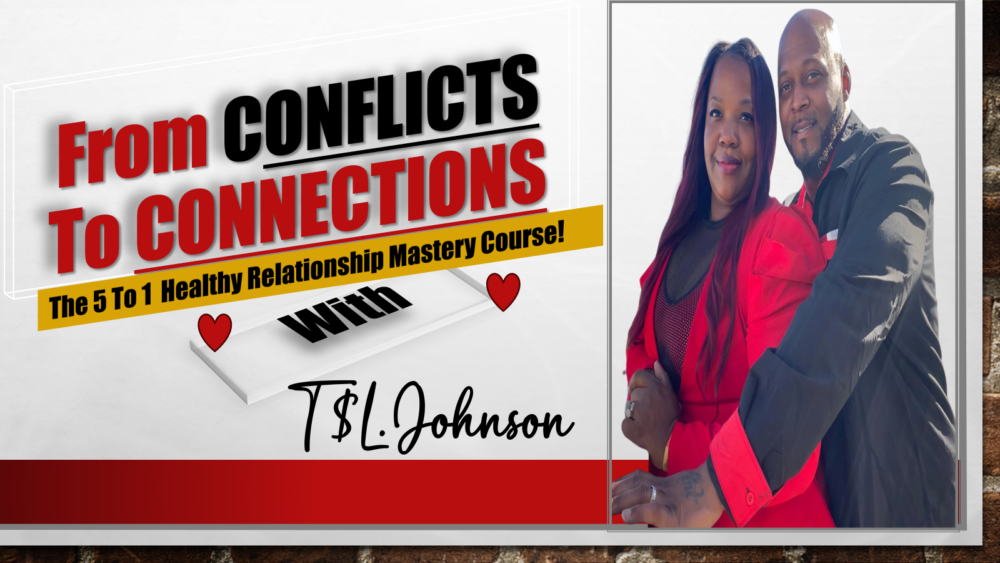Listen Actively
Put Away Distractions
We live in a world brimming with distractions; every ding from our phone can pull us away from the moment. When it comes to conversations with my partner, I’ve found that putting my phone away is a game changer. Just a simple act of setting my phone to silent or placing it in another room helps foster an atmosphere where we can truly connect without those pesky interruptions.
I’ve realized that a quiet environment allows us to focus solely on each other’s words and emotions. It sets the tone, letting my partner know that I value our conversation. Try it out; I guarantee you’ll notice a difference!
Even television can be a distraction. If we’re lounging on the couch, I’ve learned it’s best to pause that show. Eye contact is crucial in active listening; it shows I’m engaged and truly invested in what my partner has to say.
Reflect Back What You Hear
Sometimes, I catch myself nodding along without fully absorbing what my partner is saying. To combat this, I’ve started reflecting back what I hear. This simple technique not only clarifies our communication but also shows my partner that I’m listening. It works wonders!
For example, if my partner shares a concern, I might say, “So you feel anxious about your work project, right?” This confirms that I’ve been attentive and value their feelings, which deepens our bond.
Additionally, this practice encourages my partner to share even more. When they see that I’m truly trying to understand, they often open up about things that may have been left unsaid. It’s like peeling back the layers of an onion—each layer adds depth to our conversation.
Ask Open-Ended Questions
Instead of sticking to yes-or-no questions, I’ve learned the beauty of open-ended questions. They create a dialogue rather than a simple exchange of info. For instance, instead of asking, “Did you have a good day?” I might ask, “What was the best part of your day?” This shift prompts my partner to share stories and feelings that enrich our conversation.
I often find that these questions lead to unexpected topics and deep discussions. It’s like a treasure hunt for insights into each other’s lives! Throughout the conversation, I’ve found that the more I engage with these questions, the more my partner feels encouraged to share and explore their thoughts.
Open-ended questions not only spark dialogue but also demonstrate my genuine curiosity about their life. It shows I’m here for the long haul, interested in every aspect of our day-to-day experience together.
Show Empathy
Validate Feelings
Feeling understood is a fundamental part of any relationship. I’ve quickly learned the importance of validating my partner’s feelings. Instead of dismissing their emotions, I now try to acknowledge them. Whether it’s a small frustration or a major concern, saying things like “I can see why that upset you” goes a long way.
Empathy means putting myself in their shoes, feeling what they feel, and responding appropriately. When I validate their feelings, it helps them know that I am their ally and supports a deeper emotional connection.
Beyond just words, body language matters in validation. Nodding, maintaining eye contact, or simply being present reinforces my sincerity in understanding their emotions. Each of these actions combines to form a powerful sense of support that I truly believe fosters trust in our relationship.
Share Your Own Feelings
While it’s essential to listen and validate my partner, sharing my own feelings can also facilitate a more profound connection. I’ve started opening up about my emotions and experiences during our conversations, which creates a balanced dialogue. For example, after they share something personal, I might say, “I can relate; I felt something similar when…” This intertwines our experiences and strengthens our bond.
This exchange isn’t just about venting; it’s about cultivating intimacy. By sharing my vulnerabilities, I invite my partner to feel safe doing the same. It’s all about creating a safe space where both of us can express ourselves authentically.
I’ve noticed that when I express my feelings, it fosters a deeper understanding between us. We’re no longer just two individuals, but partners navigating life together, each bearing our share of experiences. It’s a beautiful dance of connection!
Practice Patience
Listening and connecting takes time and practice. I’ve found that showing patience during conversations helps create a nurturing environment. If my partner is struggling to articulate their thoughts, I’ve learned to give them space to gather their words. This simple act often leads to richer discussion.
When I’m patient, it gives my partner the opportunity to express their thoughts without feeling rushed. It helps them know that I’m genuinely interested and supportive throughout the conversation.

Moreover, patience allows me to control my own eagerness to speak. Sometimes, I have a knee-jerk reaction to jump into a conversation, but I’m learning often the best responses come after a moment of silence. Those quiet moments can be golden, allowing both of us to reflect on our feelings.
Check Your Understanding
Summarize Regularly
As our conversations progress, I’ve started making it a habit to summarize what we’ve discussed periodically. This practice isn’t just beneficial for me, it also helps my partner feel heard. For instance, I might say, “So, if I understand correctly, you’re feeling…” This shows that I’m not just nodding absentmindedly but acclimating to their emotions and understanding them.
Summaries reinforce that I’m actively engaged in the conversation. It’s an affirmation that I truly care about what’s being discussed, and it also serves to clear up any potential misunderstandings before they escalate.
You’d be surprised how effective this can be. Summarizing allows us both to pause, reflect, and then proceed forward with mutual understanding, forming a solid foundation of communication.
Ask for Clarification
Sometimes, I might misinterpret a point my partner is trying to make. Instead of making assumptions, I’ve learned to ask for clarification. This not only avoids misunderstandings but also communicates to my partner that I genuinely care about their meaning. Phrases like, “Could you tell me more about that?” or “What do you mean when you say…?” can work wonders.
This kind of questioning prompts them to delve deeper into their thoughts, facilitating a conversation that is richer and more meaningful. And trust me, it shows that I am actively involved and not just passively listening.
Moreover, when I ask for clarification, it empowers my partner to express themselves fully. They can take their time to elaborate their points, leading to deeper connections and revealing truths about how they feel, which is priceless.
Follow Up Later
Conversations don’t end once we part ways; I’ve adopted a practice of following up on previous discussions. Checking in later about a topic shows my partner that I’m still engaged and that their feelings truly matter. A simple text or a mention in passing can make a world of difference.
This follow-up has often led to continued conversations, deepening our understanding and connection. It also signals to my partner that I care about their thoughts and the issues they face, extending our dialogue beyond immediate moments.
Building on earlier conversations builds a sense of continuity in our relationship. It’s like weaving a tapestry of dialogues that reflect our evolving relationship, making each discussion feel meaningful and valued.
Conclusion
Being present in conversations with my partner has significantly enriched my relationship. It’s about active listening, showing empathy, and fostering a meaningful dialogue that strengthens our bond. By incorporating these practices into our day-to-day conversations, I feel more connected and attuned to my partner’s feelings, which is genuinely rewarding.
FAQ
What does it mean to be present in conversations?
Being present means fully engaging in the moment, actively listening, and showing genuine interest in what your partner is saying without distractions. It’s about focusing wholly on the conversation at hand.
How can I improve my listening skills?
Improving your listening skills involves putting away distractions, maintaining eye contact, and reflecting back what your partner says to show that you’re engaged. Practice active listening techniques regularly.
Why is empathy important in communication?
Empathy fosters a deeper connection between partners. It allows both individuals to feel understood and supported, strengthening the emotional bond and making it easier to discuss issues openly.
What is the benefit of asking open-ended questions?
Open-ended questions encourage more detailed and thoughtful responses, facilitating richer conversations. They invite your partner to explore their feelings and experiences more deeply, enhancing understanding between you both.
How can I ensure that my partner feels heard?
To ensure your partner feels heard, actively listen, validate their feelings, and summarize what they say. Regularly checking in and following up shows that you are engaged and genuinely interested in their perspectives.

Schedule Your First 20-Minute Coaching
Call With Us Today to see if we fit . You pick the price!
Click Here






